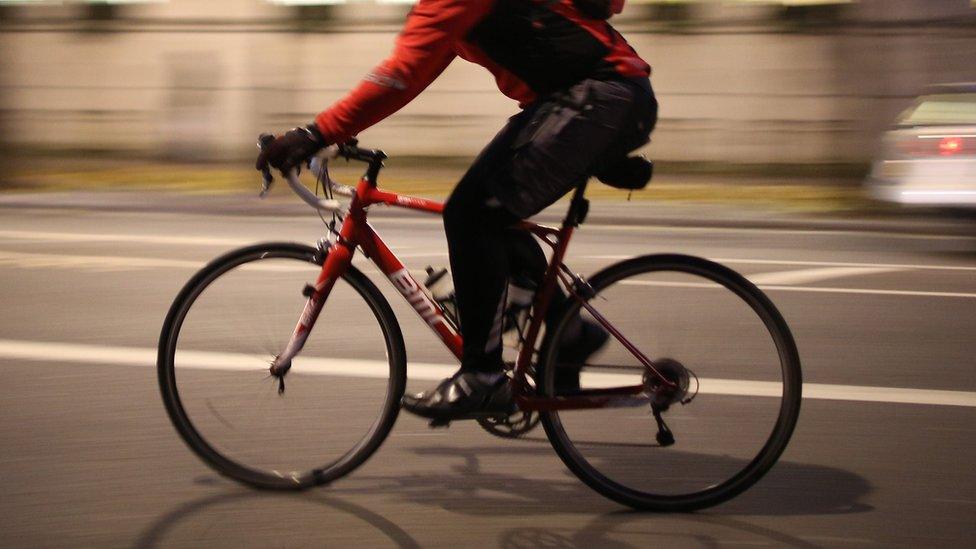Could these three changes save cyclists' lives?
- Published
- comments
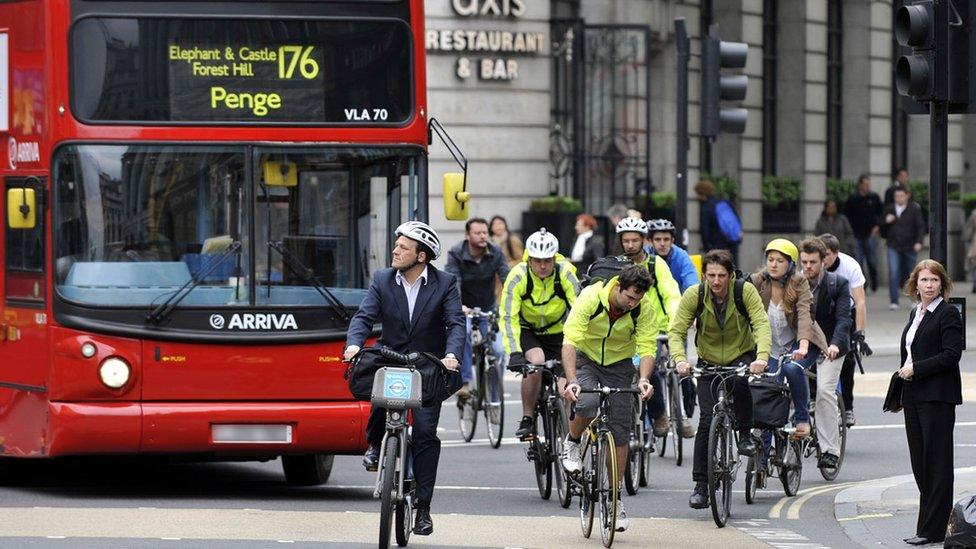
In a bid to protect cyclists, the government has announced 50 proposals, external to cater to bike users' needs and prevent collisions with motor vehicles.
While many of the proposals are centred around improving guidance for planners and law-makers, others are designed to have a direct impact on both drivers and cyclists.
But could any of these changes actually save lives? We focus here on three of them.
Financial incentives for drivers
One of the key suggestions from the government is that motorists should be offered cheaper insurance if they take a course to make them more aware of cyclists on the roads.
Andy Dodwell, a cyclist and driver from Barnstaple, Devon, said the idea made "so much sense", adding he would "gladly go on a safety course" - especially if there was a financial incentive.
Lorry driver James McNamara said he had already been on such a course and found it "very enlightening".
He would "certainly recommend" that drivers of both "large and small vehicles should take it".
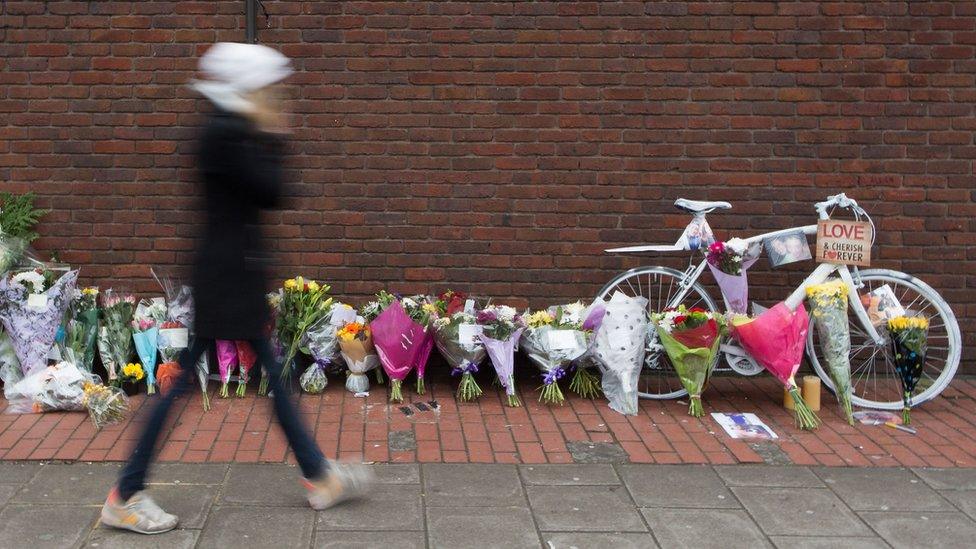
"Ghost bikes" can be seen throughout the UK where cyclists have been killed
However, when the BBC contacted a selection of insurance providers to see if they would consider reducing premiums on this basis, none committed to doing so.
The Association of British Insurers said that, as "less than 0.1% of motor claims involved cyclists" in 2017, it would be "hard to see how this could have any meaningful impact on premiums".
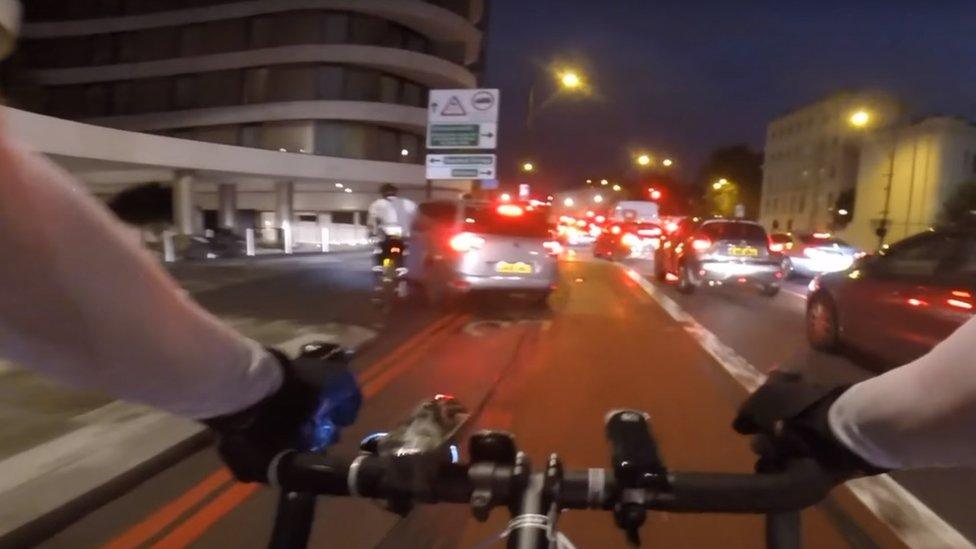
Helmet camera footage from a cyclist in London captures a near-miss
Roger Lawson, from the Alliance of British Drivers (ALB) was similarly sceptical, describing the suggestion as "gesture politics".
"I'm not sure that would have any benefit whatsoever," he said. "Most motorists are aware of cyclists and have, as in my case, been cyclists in the past. Often they are current cyclists."
Mr Lawson added that, even with a financial incentive, he and many other drivers would be "reluctant" to take part.
Could the 'Dutch reach' help keep cyclists safe?
Parking in cycle lanes
Local councils currently have powers to fine motorists who park in cycle lanes, but the government has now proposed allowing them to use cameras to improve enforcement of those restrictions.
One cyclist, who gave his name only as Lonny, told the BBC that parked cars in cycle lanes were a "huge issue", especially in London.
He said they forced riders "out of the cycle lane, into main traffic", which can be more dangerous than merely cycling in the road.
The problem is not limited to London, either.
Allow X content?
This article contains content provided by X. We ask for your permission before anything is loaded, as they may be using cookies and other technologies. You may want to read X’s cookie policy, external and privacy policy, external before accepting. To view this content choose ‘accept and continue’.
Julian Ferrier, who lives in Lancashire, described the situation as "a nightmare... especially when you're somewhere busy".
Driver Mr McNamara said it should be "obligatory for cyclists to use dedicated cycle lanes where they are provided", but for many cyclists, the lanes are not an option while they contain so many obstacles.
Could this change help save lives? Cycling UK believes so.
Duncan Dollimore, head of campaigns for the charity, said: "Although it's already an offence to park in a mandatory cycle lane, the reality is that the decline in police traffic numbers means this has been widely ignored and rarely enforced.
"Giving local authorities the power to enforce this offence with CCTV cameras is one of the simple solutions Cycling UK proposed in our response to the government's cycling and walking safety review."
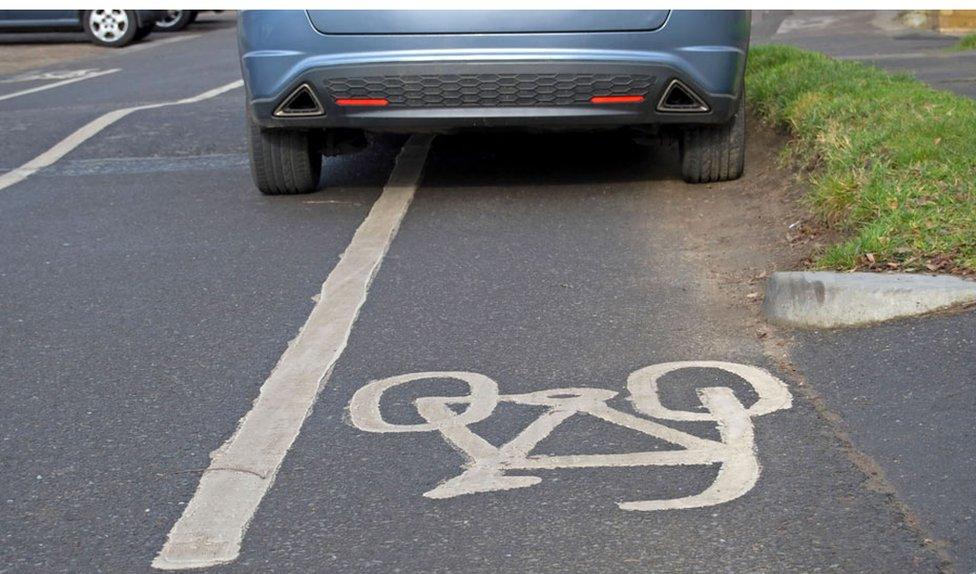
Accidents - where is the burden of proof?
In its report, the government also said it will "review how civil liability rules function" in the UK, and look at how other countries operate.
In other words, it will review how people claim for compensation when they have been in a road traffic collision.
Currently, in the UK, if a cyclist is injured following a collision with a car and wants to claim for compensation, the burden is on the cyclist to prove the motorist was at fault.
The majority of other European countries, however, operate differently.
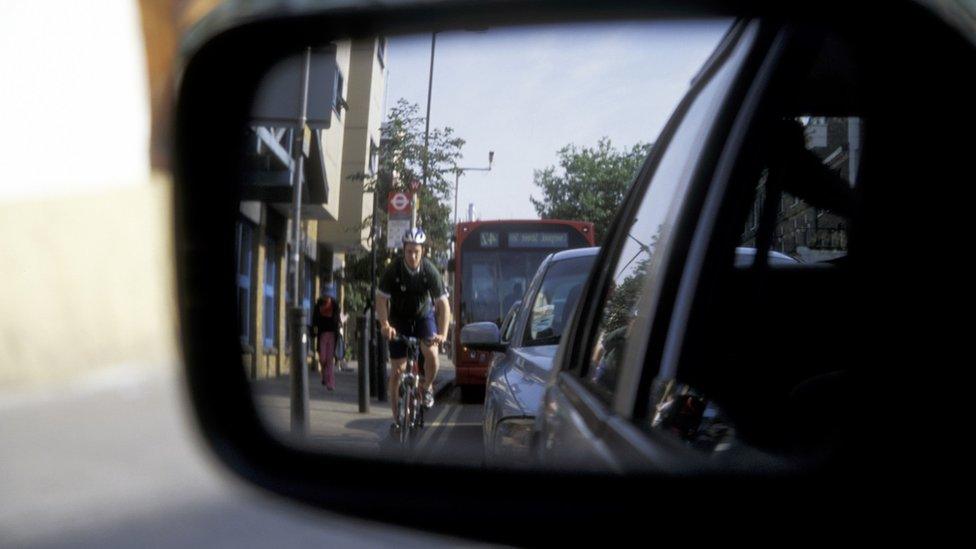
Mark Hambleton - a lawyer and expert in personal injury claims involving cyclists - explained that in the "vast majority" of European countries, the cyclist is "presumed to be the vulnerable road user".
"So, to encourage motorists to behave more cautiously around them, if there's an accident involving a motorist and a cyclist, the presumption is that the motorist is responsible for the accident," he explains.
"It just flips that responsibility for proving guilt and innocence on its head."
Would this make drivers more aware?
The government has not provided, at this stage, any proof that changing civil liability laws would improve safety for cyclists, and the ALB said it would "certainly oppose any change to make drivers automatically liable in accidents involving cyclists".
But for Mr Hambleton, a cyclist himself, changes such as this could make drivers "less reckless" around bikes and pedestrians.
He adds, however, law changes are unlikely to save lives on their own - "You have to improve infrastructure for cyclists, increase awareness and change the culture we have at the moment."
'I'm going to die on this roundabout' - a cyclist shares their helmet-camera footage
Ultimately, the government appears to acknowledge this with its 50 proposals, and, for some cyclists, any progress should be seen as a positive.
"I don't think people realise how vulnerable or how frightening it is to be a cyclist," said Lonny.
"Anything that makes people aware of the vulnerability and safety of other people on the road is a good step in the right direction."
- Published18 October 2018
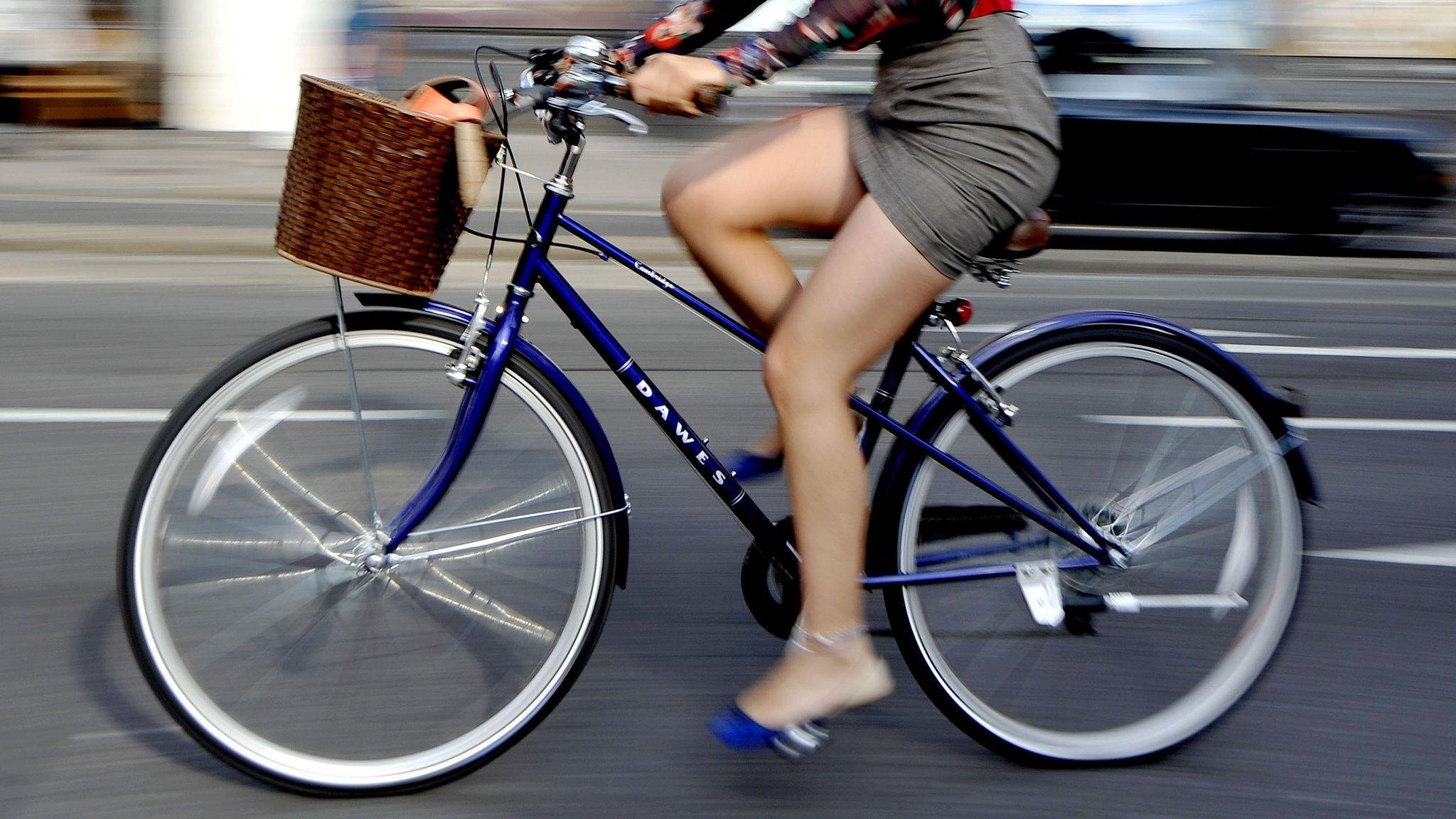
- Published5 June 2017
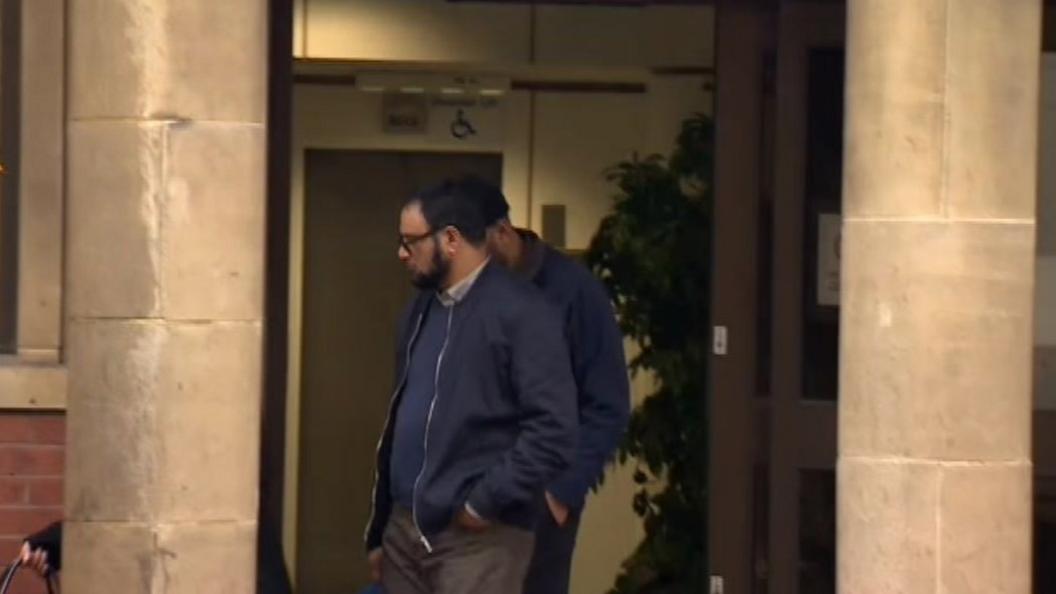
- Published12 August 2018
